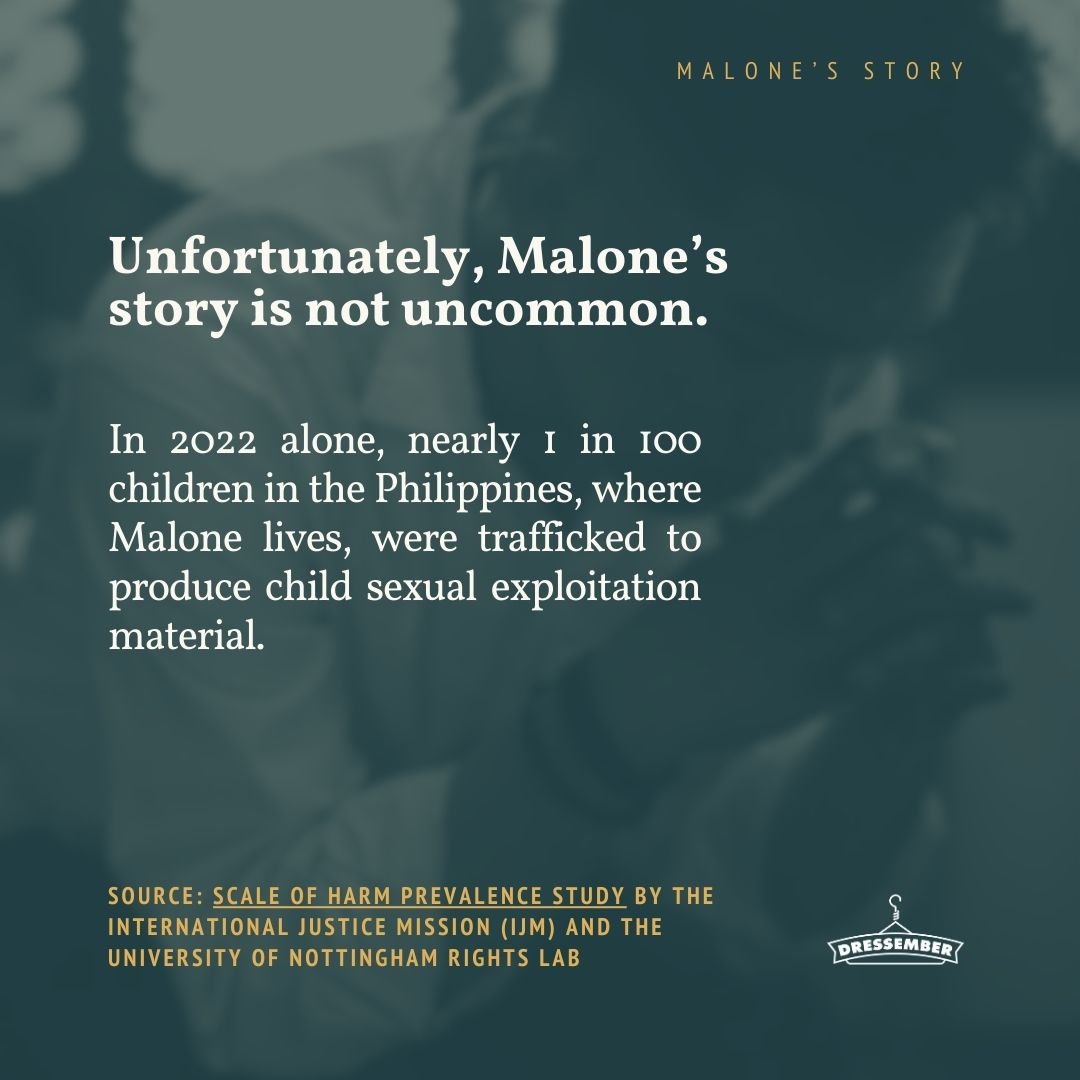Malone's Story: Surviving OSEC
By Caitlin Kinder
Content warning for human trafficking and abuse.
“[I am] a brave person. [I am] very courageous despite all that has happened to [me]. ”
This is how Malone* describes himself, and we agree. With the support of advocates like you, Malone is now on a journey of healing and restoration. But Malone’s bravery comes at a heavy cost.
Malone is a survivor of the Online Sexual Exploitation of Children (OSEC). OSEC is the virtual creation, processing, and distribution of child sexual abuse to offenders all over the world.
Unfortunately, Malone’s story is not uncommon. In 2022 alone, nearly 1 in 100 children in the Philippines were trafficked to produce child sexual exploitation material, according to estimates from the pioneering Scale of Harm prevalence study by the International Justice Mission (IJM) and the University of Nottingham Rights Lab that was co-designed with survivors of this crime. That’s roughly half a million children who each, within the span of one year, experienced realities like Malone’s.
When Malone was in the third grade, his aunt and uncle offered him a place to live, with the promise of food and money, so long as he participated in household chores. Instead, Malone’s aunt and uncle, whom he thought he could trust, forced him to perform sexually explicit acts on himself and other children in front of a webcam for two years. The sexually explicit content they were forced to create was recorded and distributed online to paying sex offenders.
He was made to believe that if he told anyone, his life, and the lives of his family, would be in danger:
“You’ll be killed if you report what’s going on. You must think of your family, that they would remain safe.”
So Malone remained silent.
Malone shared that the fear of retribution for speaking up was ever-present during those two years, physically manifested in the presence of his uncle, who kept watch by the locked door, loaded gun in hand:
“When you look at him, he’s scary. His eyes... He would beat you. If you refuse to obey them, he’d show you his gun to threaten you.”
Thankfully, when Malone was in the fifth grade, the U.S. Homeland Security Investigations Office learned what Malone’s aunt and uncle were doing and stepped in. After an investigation, and with support from Dressember’s partner in the region of the Philippines where Malone lives, the two were arrested for their crimes relating to the online sexual exploitation of children.
Shortly after, with a team of determined social workers, law enforcement officers, and Dressember’s partner, Malone, along with 12 other children who experienced abuse and exploitation at his aunt and uncle’s hands, were brought to safety and began their journey of freedom and recovery.
We’re so happy to report that today, after years of restoration in a partner home for boys, Malone has graduated college with an Information Technology degree. But that’s not all: he’s even become an advocate for other OSEC survivors. In 2022, he, along with nine other survivors, co-authored a letter to the UK Parliament about the Online Safety Bill. His role as a survivor advocating for change is pivotal as we seek justice and reform.
At Dressember, we are committed to protecting OSEC victims and supporting the restoration of their health and autonomy. Join our prevention, intervention, and survivor empowerment efforts by becoming an advocate for the Dressember 2023 campaign and giving a gift to Dressember today.
* a pseudonym
About the Author
Caitlin Kinder is a third-year advocate for Dressember because she believes that all people have inherent dignity and value. She recently graduated from Texas Tech University with a Bachelor’s degree in English Creative Writing and is now an editorial intern for Dressember while she remains in Lubbock, Texas, investing in her local community. Caitlin enjoys dancing, hiking, painting, and sitting around a dinner table with her friends. You can find her at @caitkind on Instagram.



